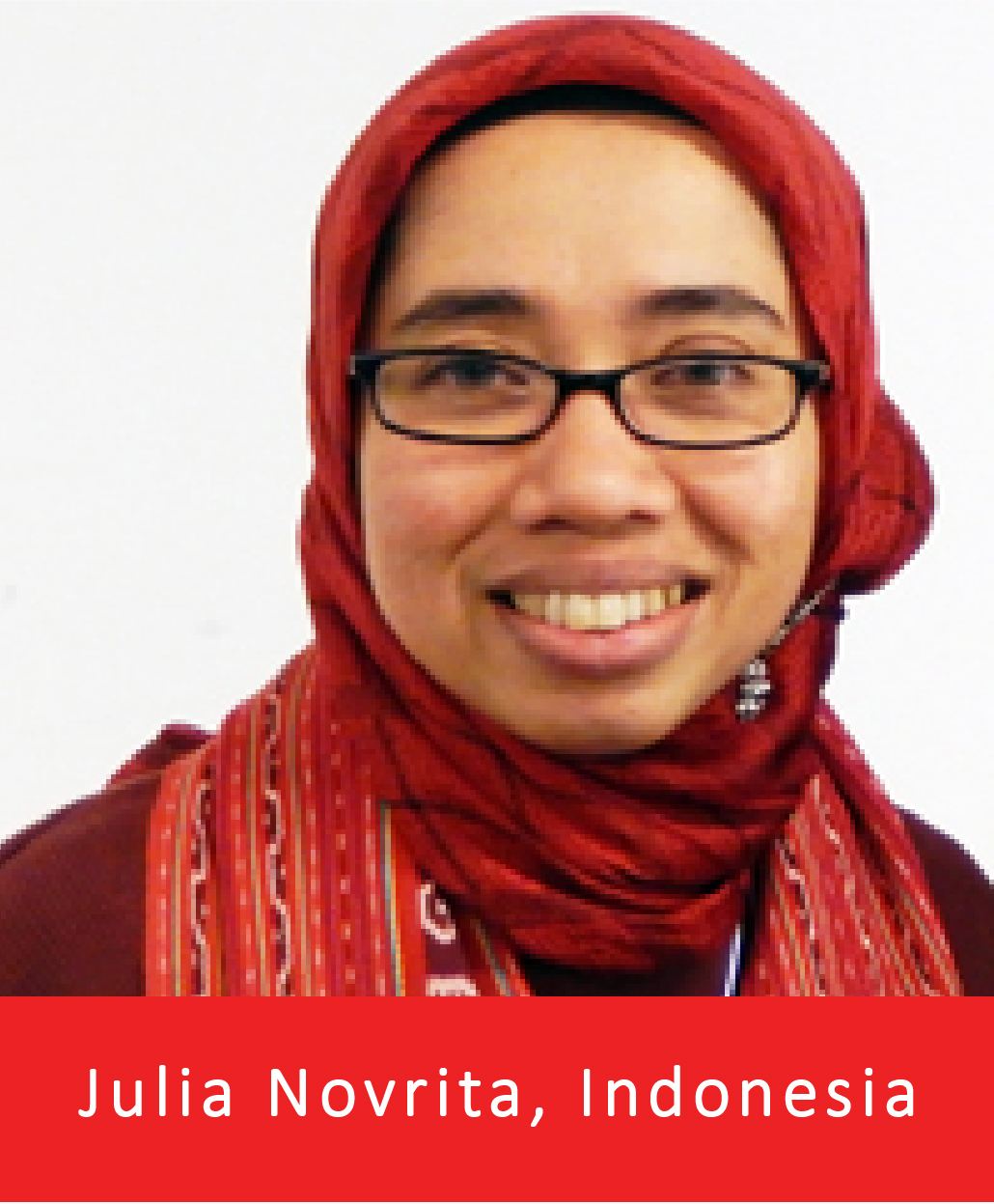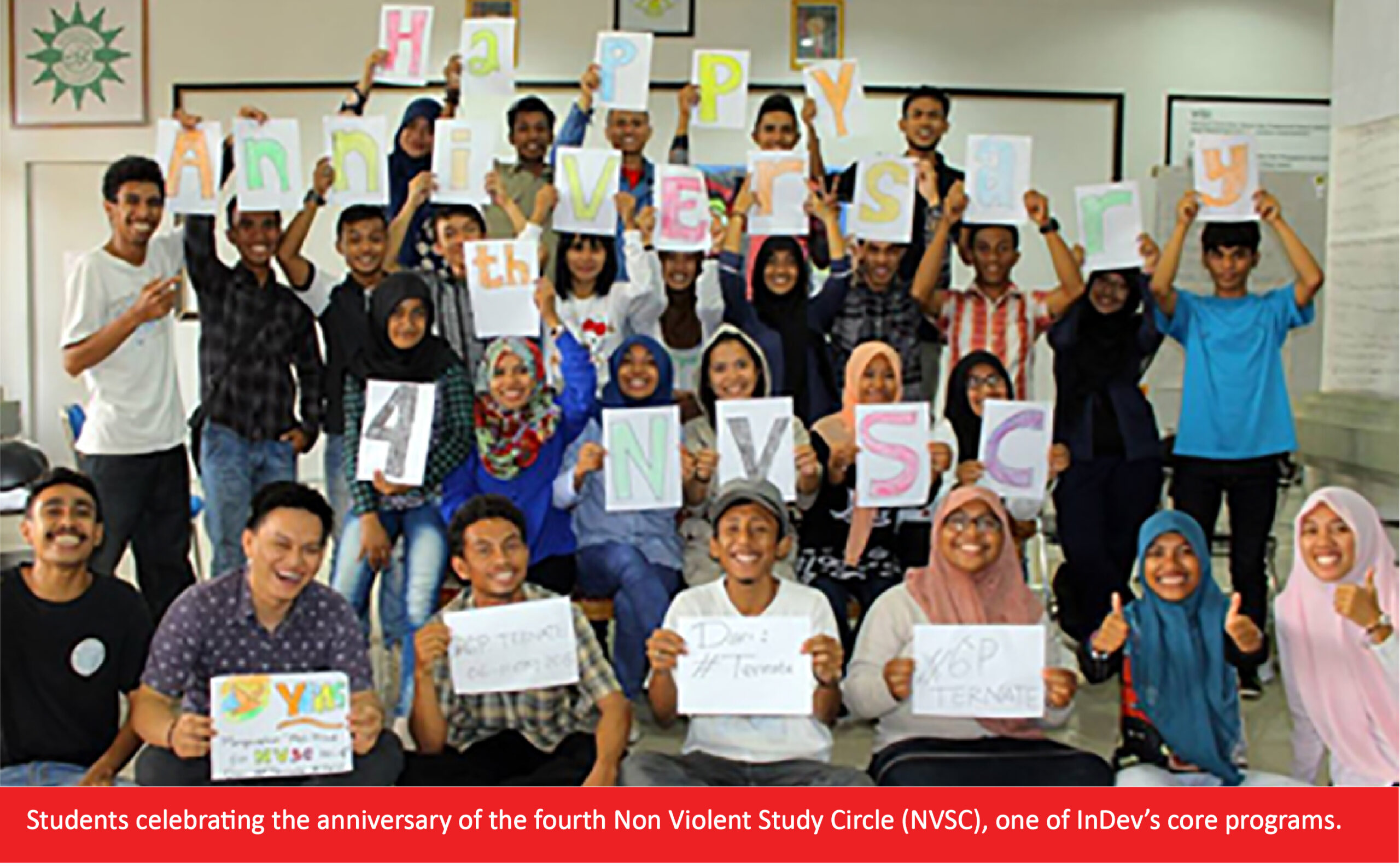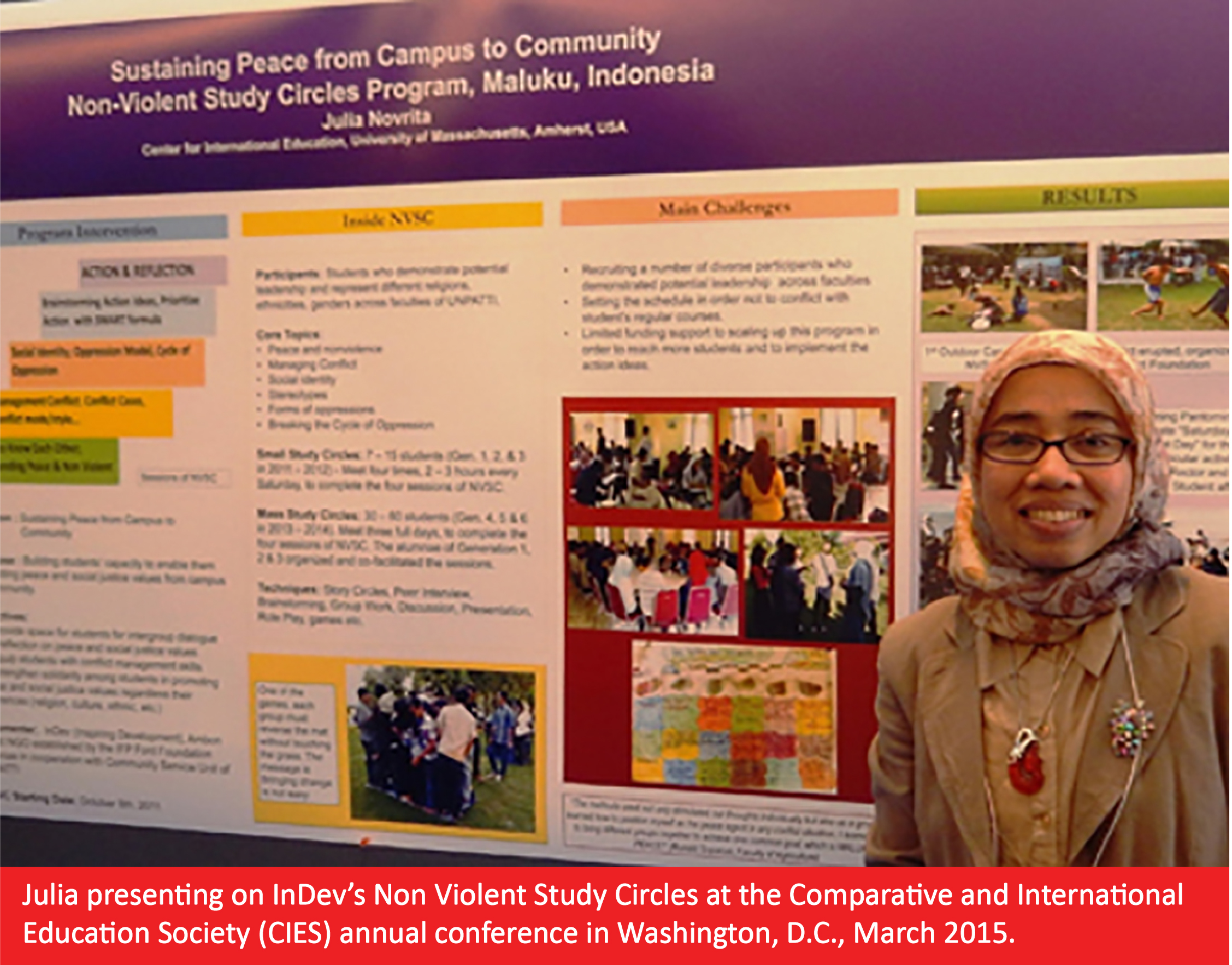Julia Novrita, Indonesia

Master’s in Intercultural Service, Leadership and Management School for International Training, United States 2005-2007
Julia was raised in a village community in Aceh, on the northern tip of the Indonesian island of Sumatra. Growing up, Julia was exposed to the types of conflicts that plague many parts of Indonesia, experiences which influenced her studies and career path. Since completing her Master’s, Julia has been working to strengthen the provision of education in Indonesia through InDev, an NGO she co-founded that seeks to strengthen the capacity of community groups, NGOs, governments and education institutions through training, research, and consultancy. Julia is also currently pursuing her PhD in International Education at the University of Massachusetts Amherst.
We spoke to Julia about her reasons for pursing the IFP fellowship, the impacts of conflict on education, and how she is working to empower students to lead social change in Indonesia. The conversation has been edited and condensed for clarity.
What motivated you to apply for the IFP fellowship?
After graduating from college, there had been a prolonged armed conflict in Aceh, Indonesia and widespread corruption in the government, making the job market difficult. I realized if I didn’t get my Master’s, I wouldn’t go anywhere. In 2001 I volunteered with an organization that helps women and children displaced by conflict in a very rural area where some of those We had to pass through ten military checkpoints just to get there. Some places had been burned, even the schools, so the children didn’t have a safe place to study. We helped run a school out of a home. When I met those children and saw their schools and villages, I forgot my own bad luck of not finding a job. In the city we don’t really know how bad the impact of conflict is in rural areas. This was really my motivation for pursuing my Master’s.
What other challenges are facing the education system in Indonesia?
Following my Fellowship, I moved with my husband (a fellow IFP alumnus!) to West Papua in Eastern Indonesia, where I saw new types of injustice. Many communities there only have access to primary school, and there is a shortage of teachers, with sometimes only one teacher for 1st through 6th grade. Students have to travel outside their communities to pursue additional education. Following the 2004 tsunami, a lot of aid was directed to Indonesia, including opportunities and scholarships for students, but not as much was sent to the eastern part of the country. So I’m trying to support students in that area.
I also worked on a EP-Nuffic funded project in the region to improve the quality of education, research, and community services for engineering programs at four universities. We provided indirect support to fisheries and agriculture programs as well, which involved 9 universities in Eastern Indonesia in total. During the project, I was stationed in Ambon, Maluku, and I observed how segregation between Muslims and Christians in society affected political dynamics on campus and how this division is sharpened during local and national elections. This experience was the inspiration for me to initiate the Non Violent Study Circles (NVSC) program run by my NGO.
Tell me more about your NGO, Inspiring Development (InDev).
I launched it in August 2011, with my husband, Muhammad G. Korebima, and another IFP Fellow, Lusia Peilow, in response to violent conflicts involving students at Pattimura University. Our mission is “Sustaining Peace from Campus to Community,” considering the historical context of Maluku, which had a civil war between Muslim and Christian communities from 1999 to 2002.
In creating the program I also drew from my internship experience at the Montgomery County Public Schools (MCPS) Study Circles Program in Maryland. Through an emphasis dialogue and critical reflection, the program explores topics such as peace and nonviolence values, social identity, stereotypes, forms of oppression, and conflict management. The target participants are students who demonstrate leadership potential and represent different religions, ethnicities, genders, and academic disciplines. We look at what it means to be human and how to solve and transform conflict without violence. We are trying to foster the values and spirit of volunteerism.
That is wonderful. And I understand you have received funding from the United Nations, correct?
Yes. We have received support from the United Nations Alliance of Civilizations (UNAOC), the Ford Foundation, World Learning, and Lisle International. And thanks also to Pattimura University and colleagues, we have been able to sustain and expand NVSC’s mission to seven other provinces to serve by students representing 33 universities. I have also drawn a lot of support from the Indonesia IFP alumni association, also known as the Indonesia Social Justice Network (ISJN).

What are your goals for the future of InDev?
I’m really concerned with program impacts. The students are amazing. One received a global young emerging leader award and attended leadership training in Washington D.C. I try to help them take ownership of the program and hope they will create social change with the trainings and values they receive. I feel that my IFP fellowship increased my ability to design trainings that are effective. Now, I am focused on strengthening capacity of the program alumni to trainers and facilitators, as well as improving the quality of the program.
What inspired you to go back to school for your PhD in International Education?
There are a lot of challenges and competing interests in the field of higher education in post-conflict settings, and I want to learn how to best approach these challenges through policy development. I see a window of opportunity in Indonesia right now. There is no official policy for post-conflict education, but there is support for it at the national level. There is more flexibility to design post-conflict education programs that are relevant to particular regional contexts, and I want to increase my capacity to contribute to development. My doctoral research is focused on student engagement. I see students as the agents of social change, and I want to be able to empower them to contribute to social reconciliation in Indonesia.